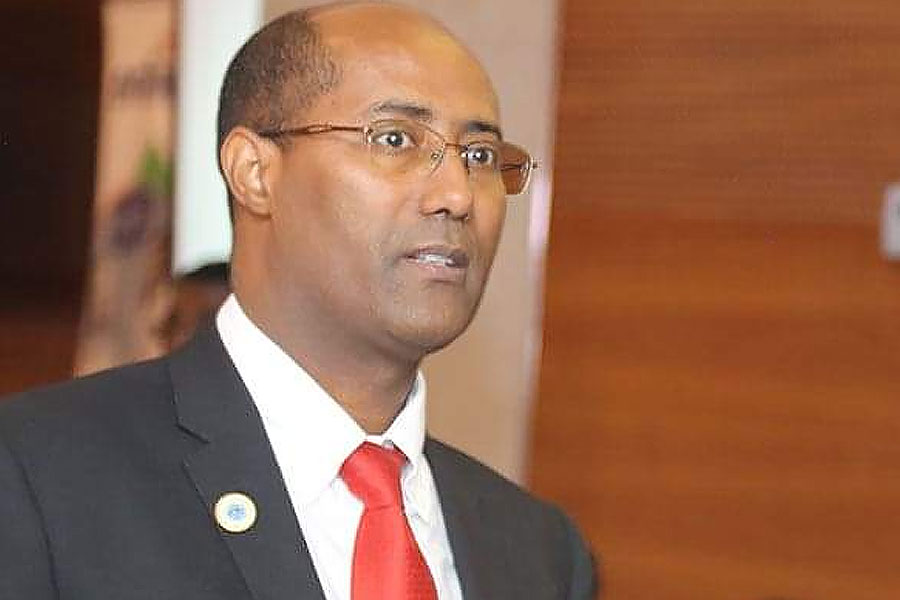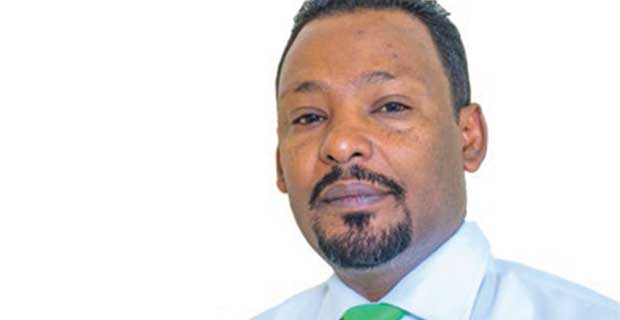
Fortune News | Apr 30,2021
Awash Bank, the most profitable private bank in the country, netted 2.6 billion Br in profit in the last fiscal year. The profit expansion recorded a seven percent growth rate, lower than the preceding year’s rate of 65pc.
Despite the modest growth in profit after tax, the earnings per share (EPS) of Awash fell by 122 Br to 510 Br due to the injection of fresh capital. Last year, Awash increased its paid-up capital by 33pc to 5.85 billion Br.
Even though the EPS declined, it is still at an outstanding level, according to Abdulmenan Mohammed, a financial statement analyst with close to two decades of experience.
Last year was a year of challenges to the country in general and to the banking industry in particular, according to Dibaba Abdeta (PhD), board chairperson of the Bank.
The COVID-19 pandemic, elevated inflation, political instability in some parts of the country, and stiff competition in the banking industry were the major challenges mentioned by Dibaba.
“Despite all these challenges,” said Dibaba, “Our Bank operated efficiently and once again has recorded a meritorious performance and a unique result of its kind.”
Even though the profit growth rate has declined, it is still good, according to Dawit Gezahegne, who joined the Bank as a shareholder two decades ago, a few years after the establishment of the Bank.
“The return I received this year is the same as last year with a lower number of shares,” said Dawit, who also attributed the global outbreak of the pandemic to slower profit growth of the Bank.
Dawit became an Awash shareholder after purchasing 10 shares; now he owns 250.
“I've only spent a small amount of money to raise the number of my shares,” he said. “I've been reinvesting the dividend I receive into new shares.”
Dawit says he is still happy with the yield of his shares at the Bank, citing his bad experience in share investment. A few years back, he bought shares at a real estate firm named Blue Nile.
“I've heard nothing from them since then,” said Dawit, one of the 4,369 shareholders of Awash.
Tsehay Shiferaw, CEO of Awash, which started operations in 1995 with paid-up capital of 24.2 million Br raised from 486 shareholders, argues that the gross profit of the Bank was much higher than the previous year. But the net profit could not grow as last year, since the Bank held a higher provision.
"Higher provision is a sign of a bank's strength," said Tsehay. "Since it isn't a real expense, it'll make the Bank stronger, and it's even encouraged by the central bank."
The growth in profit after tax has mainly been attributable to a mixed performance. Awash recorded a significant increase in interest income and fees and commissions. Awash’s interest on loans, advances, National Bank of Ethiopia (NBE) bonds and other deposits surged by 32pc to 7.9 billion Br.
This must have been mainly due to a massive increase in loans and advances, which went up by 20pc to 56.3 billion Br.
The revenues from non-financial intermediation businesses showed a mixed performance. Fees and commissions increased by 19pc to 1.6 billion Br and the gain on foreign exchange dealings decreased by four percent to 439.3 million Br. Other income increased by six percent to 285.9 million Br.
The reduction in foreign exchange income must have been related to the volatile international trade and the severe foreign exchange shortage, according to Abdulmenan.
The increase in income resulted in increased expenses. Interest on deposits increased by 26pc to 2.7 billion Br, personnel expense went up by 36pc to 2.2 billion Br and other operating expenses increased by 31pc to 1.2 billion Br.
The Bank had 466 branches at the end of the last fiscal year with 10,130 employees.
Provision for impairment of loans and other assets soared by more than five fold to 587.6 million Br, representing 15pc of the profit after tax of Awash.
"Such a level of provision has never been seen at the private banks," said Abdulmenan.
Tsehay says that the Bank held a higher provision, considering all risks that can occur in the country and economy including COVID-19.
"As management, we believe in holding a higher provision whenever we earn a good profit," Tsehay said.
The balance sheet of Awash expanded at a good pace. Awash’s total assets increased by 20pc to 89.3 billion Br. Awash mobilised deposits of 70.6 billion Br, an increase of 18pc. The growth of deposits and loans, however, showed a slowdown.
This may have been mainly due to a liquidity crunch that occurred last year, according to Abdulmenan.
Last year, banks faced a liquidity strain that had not been seen in the economy for over two decades. To alleviate the problem, the central bank has offered 14.5 billion Br in loans to the cash-strapped commercial banks at a competitive bidding interest rate.
Awash's loan-to-deposit ratio increased by one percentage point to 79.7pc.
The loan-to-deposit ratio of Awash is impressive, according to Abdulmenan.
"The lifting of the 27pc NBE bill directive must have contributed to such an improved loan-to-deposit ratio," he said.
Last year, as a major policy change, the central bank repealed the mandatory NBE bill, which required banks to surrender 27pc of the gross loans and advances of the central bank. With a maturity period of five years, the bond aimed at mobilising funding for the Development Bank of Ethiopia (DBE), which finances priority areas.
The investment in NBE five-year bonds decreased by 12pc to 9.9 billion Br. The investment represents 11.1pc of total assets and 14pc of total deposits of Awash.
The liquidity position of Awash increased in value and relative terms. Awash’s cash and bank balances increased by 27pc to 14.5 billion Br. The ratio of liquid assets to total assets climbed to 19.5pc from 15.9pc.
"Awash has an ideal liquidity level," said Abdulmenan, "and it should hang onto it."
Awash has capital and non-distributable reserves of just over 9 billion Br. The capital adequacy ratio (CAR) increased to 16pc from 14.9pc.
The CAR of Awash is reasonable, according to the expert.
PUBLISHED ON
Dec 05,2020 [ VOL
21 , NO
1075]

Fortune News | Apr 30,2021

Fortune News | Mar 19,2022

Commentaries | Feb 08,2020

Exclusive Interviews | Sep 07,2025

Fortune News | Jun 18,2022

News Analysis | Oct 30,2021

Fortune News | Feb 06,2021

Radar | Mar 05,2022

Fortune News | Aug 24,2019


Dec 22 , 2024 . By TIZITA SHEWAFERAW
Charged with transforming colossal state-owned enterprises into modern and competitiv...

Aug 18 , 2024 . By AKSAH ITALO
Although predictable Yonas Zerihun's job in the ride-hailing service is not immune to...

Jul 28 , 2024 . By TIZITA SHEWAFERAW
Unhabitual, perhaps too many, Samuel Gebreyohannes, 38, used to occasionally enjoy a couple of beers at breakfast. However, he recently swit...

Jul 13 , 2024 . By AKSAH ITALO
Investors who rely on tractors, trucks, and field vehicles for commuting, transporting commodities, and f...

Oct 25 , 2025
The regulatory machinery is on overdrive. In only two years, no fewer than 35 new pro...

Oct 18 , 2025
The political establishment, notably the ruling party and its top brass, has become p...

Oct 11 , 2025
Ladislas Farago, a roving Associated Press (AP) correspondent, arrived in Ethiopia in...

Oct 4 , 2025
Eyob Tekalegn (PhD) had been in the Governor's chair for only weeks when, on Septembe...